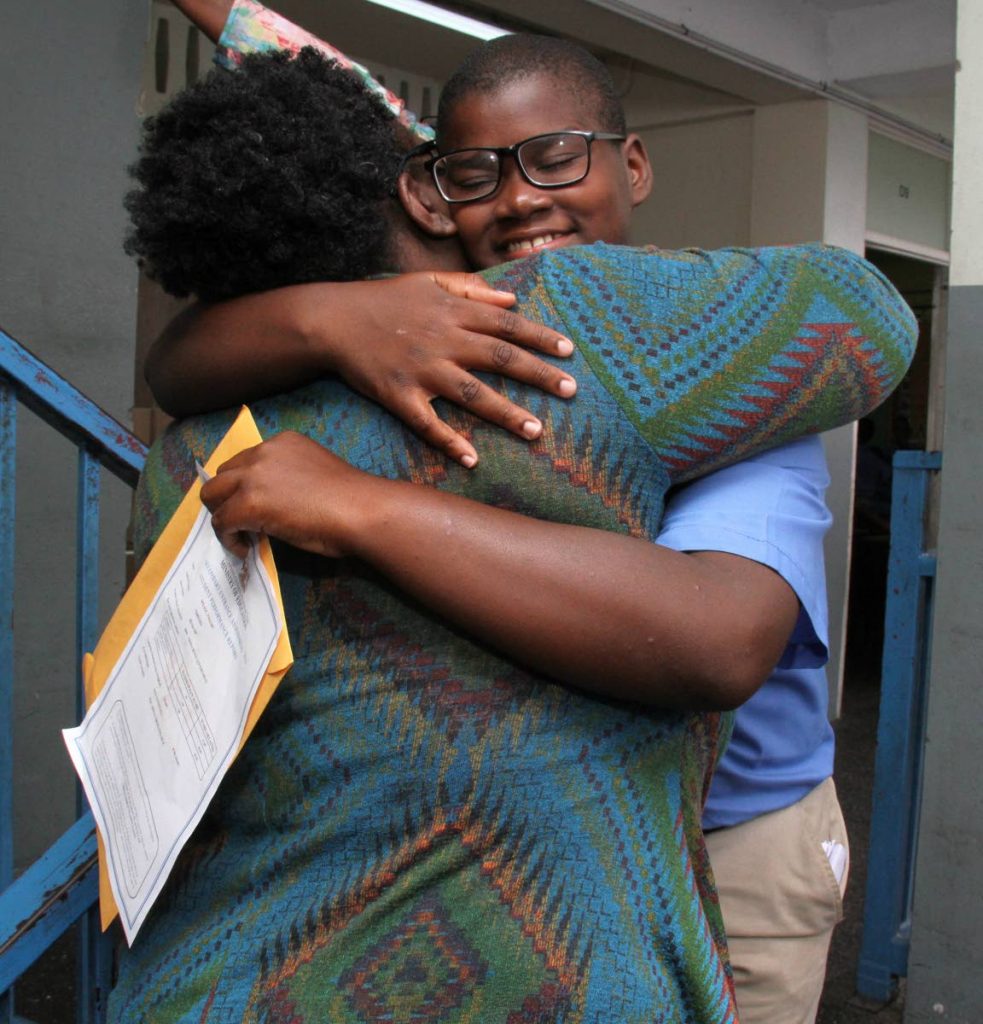Learn from prestige schools

The country needs to research why denominational schools perform well and replicate the formula in schools that underperform.
This was the advice of St Augustine MP Prakash Ramadhar in response to Justice Frank Seepersad’s condemnation of the pressure placed on primary school children to pass for so-called prestige schools.
At the Secondary Entrance Assessment (SEA) Examination results announcements on Friday, Seepersad said many children felt they failed in the eyes of society if they did not pass for one of these schools and believed the exam should be revised.
Speaking to Sunday Newsday at the St Augustine Girls’ High School (SAGHS) career fair yesterday, Ramadhar said when his daughter wrote SEA last year she asked why all secondary schools were not made into prestige schools and it made him think. “We know we all can’t be equal but let’s make a real effort to lift those schools people may not wish their children to go to and change them into schools people would want their children to attend.” He said offhand, discipline and religious or cultural values instilled in the children were some common factors. He also believed if teachers and parents showed faith in children, they would be motivated to do better.
“Children will do poorly if they think no one cares about them – that includes teachers and parents. Part of that caring is for parents to show interest. Find out what they did in school, what they learned, if they have a problem in school. Communication with their children is crucially important.”
For the schoolchildren who did not have the necessary support from parents, he said teachers who pushed them, believed in their abilities, cared for and paid attention to the students were necessary. Therefore, teachers cannot do the absolute minimum when the future of the country is at stake.
SAGHS principal Linda Dharrie admitted that her school was a good one with a good reputation, however, she did not like the term “prestige.” She said the “prestige” of any school was a perception that the country created.
She said the good reputation was achieved mostly because the students who entered the school were “some of the best” and because of tremendous parental support. In addition, she said the system in place was good because of the church, the principals that maintained and tweaked the system, the non-academic systems and supports, and the fact that those involved inspire people to believe in those systems.
“It pains me to think that students who don’t attend a seven-year school may feel worthless. Especially because I know many five -year school students who went on to do very well academically and in life.”
She added that people did not take into consideration that, while these schools accept students who where the “cream of the crop,” they did not have the infrastructure to accept all the excellent students in the country. Therefore, a student not being accepted had no bearing on their ability.
“A student can perform at any institution but it depends on the individual, as well as the support they have at home and at the school.”
For example, she said peer pressure could make or break a child according to their constitution. Also, the home played an important part in nurturing the child, and teachers should try to encourage and assist the weaker students thereby helping them to succeed.
SAGHS Parent Teacher Association president, Sharifa Ali-Abdullah agreed. She said, “I think it’s important to recognise that the SEA results do not define our children. The kind of importance we place on this and the kind of stress that the children undergo to prepare for this exam is having a serious impact on them. I think it actually robs children of their childhood.”
She said some parents live vicariously through their children and put too much pressure on them to make high marks or attend certain schools. Instead of that unhealthy view, she said parents should teach children to do their best, be confident, and allow them to enjoy their childhood.
Ali-Abdullah said policymakers were looking into reviewing and eventually replacing the exam. In the mean time, however, parents should nurture their children, allow them to learn with curiosity, passion and excitement for life, so that they could become balanced, well-rounded individuals who are prepared for life.
She added that children developed and matured at different rates and ages, and according to their abilities. A child may not peak at age 12 but rather during university or even later on in life. “I think it’s important for us to look at each child as an individual and to see how to tailor education so they can really self-actualise.”


Comments
"Learn from prestige schools"